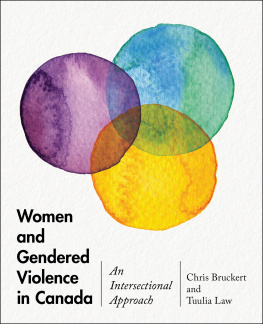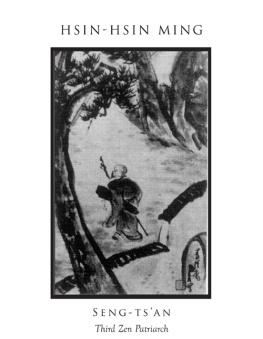Stanford University Press
Stanford, California
2009 by the Board of Trustees of the Leland Stanford Junior University. All rights reserved.
No part of this book may be reproduced or transmitted in any form or by any means, electronic or mechanical, including photocopying and recording, or in any information storage or retrieval system without the prior written permission of Stanford University Press.
Printed in the United States of America on acid-free, archival-quality paper
Library of Congress Cataloging-in-Publication Data
Yu, Wei-hsin.
Gendered trajectories : women, work, and social change in Japan and Taiwan / Wei-hsin Yu. p. cm.
Includes bibliographical references and index.
9780804771047
1. WomenEmploymentJapan. 2. WomenEmploymentTaiwan. 3. Sex discrimination in employmentJapan. 4. Sex discrimination in employmentTaiwan. 5. Sex discrimination against womenJapan. 6. Sex discrimination against womenTaiwan. I. Title.
HD6197.Y8 2009
331.40951249dc22
2008036648
Typeset by Publishers Design and Production Services, Inc. in 10/13 Sabon
ACKNOWLEDGMENTS
Having lived in four different countries during the past decade and a half, I find myself constantly observing national differences in institutions, norms, and practices, and I often think about how these differences shape our actions, views, and actual life chances. Many of my daily observations turn into conversation starters or, less frequently, sources for mildly intellectual debates. This book, however, is a product of a more serious attempt to satisfy my curiosity regarding why people from different societies face different choices and constraints. The comparison between Japan and Taiwan began to make sense to me when I first visited Tokyo in 1995. I remember how everything seemed so familiar yet different from that in Taiwan, where I grew up. Immediately I wanted to tell a story about the differences I observed. As years went by, I learned more about both societies and came to the realization that providing explanations for the observed differences between them was not as easy as I originally thought. A turning point occurred in late 2002, when I returned to Japan to observe changes it had experienced due to the economic turmoil of the late 1990s. As I recognized the influences of previously set conditions on recent development, it became clear to me that a complete understanding of womens employment in Japan and Taiwan requires a careful look into history. Rather than asking why these countries are so different today, I decided to uncover the processes of change that led to the different levels of gender inequality in the two economies.
My intention of exploring changes in womens economic opportunities over time eventually became this bookone about gender and social change in Japan and Taiwan. The task of examining two countries across several decades of time was not a simple one; it would not be possible without support from numerous people. To begin, Mary Brinton played an important role in realizing my wish to study and experience Japanese society at an early point of my career, and has provided invaluable help and suggestions throughout various stages of this project. Her constant encouragement convinced me that the rather long journey I took to complete this book was worthwhile. The constructive criticism Bill Parish provided early on helped develop the book by making me rethink about the research questions and arguments. From him I also learned to organize and present the results in a more accessible fashion. Linda Waite and Kazuo Yamaguchi also provided useful feedback on methodological and conceptual issues during early stages of the project.
Various people from Japan and Taiwan, academics or otherwise, have greatly contributed to my understanding of these countries. Friends I made while living in Tokyo not only have been important sources of information for a foreigner like me, but have also given me many precious memories of Japan. Among them, I especially thank Yoshie Arita, Sanae Isozumi, Chiaki Sekiguchi, and Takashi Kusaka for helping me locate informants for my fieldwork in Tokyo during 19961997. Shih-min Wang, Lung-yu Tsai, Lingyi Lee, Bo-rong Pan, Hui-jun Liu, Mei-yaw Yeh, Chong-ying Niou, and Huiju Wu did the same for my fieldwork in Taipei, for which I am thankful. In addition, Shuichi Hirata and Reiko Yamato were incredibly helpful when I returned to Japan to conduct more field research in 2002. Shuichi was instrumental for my obtaining institutional affiliation, important contacts, and even a place to stay. Despite having hardly known me at the time, Reiko went through enormous trouble to arrange my visits to various government offices and related institutions in the Kansai area. I am deeply indebted to their kindness. Furthermore, I am grateful to Ming-Ching Luoh for offering critical data for my analysis regarding entry into Taiwans elite universities (Chapter 7). This book has also benefited from indispensable inputs from Kuo-hsien Su, Nan Lin, Yoshimichi Sato, Fumiaki Ojima, and Hiroshi Ishida. Of course, I owe a tremendous thank you to all the women and men I interviewed in Japan and Taiwan, who squeezed time out of their busy schedules to share their life stories and insights with me.
During the process of carrying out this project, I was fortunate to receive extensive institutional support. My early fieldwork in Japan and Taiwan was funded by Hosei University in Japan, Academia Sinica in Taiwan, and the Chiang Ching-kuo Foundation. Generous grants from the National Science Council in Taiwan, the Center for Asian and Pacific Studies and Institution of Sociology at Academia Sinica, and the Matsushida Foundation allowed me to obtain research assistance and take another extended field trip to Japan in 20022003. The Japan Institute of Labour hosted me during my stay in Tokyo in 2002, and enabled my access to several government institutions and a vast amount of research materials. A research grant from the Vice Presidents Office at the University of Texas at Austin came in at a later stage and provided the help I needed to bring the book into shape.
I started this book while working at Academia Sinica and finished it at the University of Texas at Austin. Both institutions provided friendly yet intellectually challenging working environments, which eased my pursuit of this work considerably. I am grateful to all my colleagues at these institutions for their support, encouragement, and feedback at various stages of the project. I extend special thanks to Ari Adut, Art Sakamoto, Kelly Raley, Christine Williams, and Yun Fan for their helpful suggestions as well as for their friendship.
Several people provided crucial research and editorial assistance that prompted completion of the book. In particular, I thank Chih-yao Chang, Daisuke Wakamatsu, Pei-lin Lee, and Shannon Shen, who helped collect much of the aggregate statistics and policy details presented herein. I also appreciate Donna Maurer for copyediting early drafts of the book. She patiently went through several rounds of editing with me and made the book better as a result.







